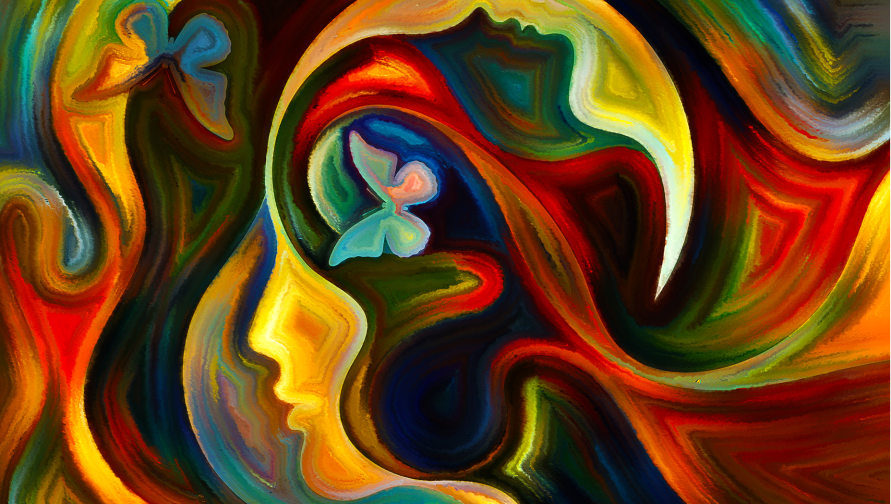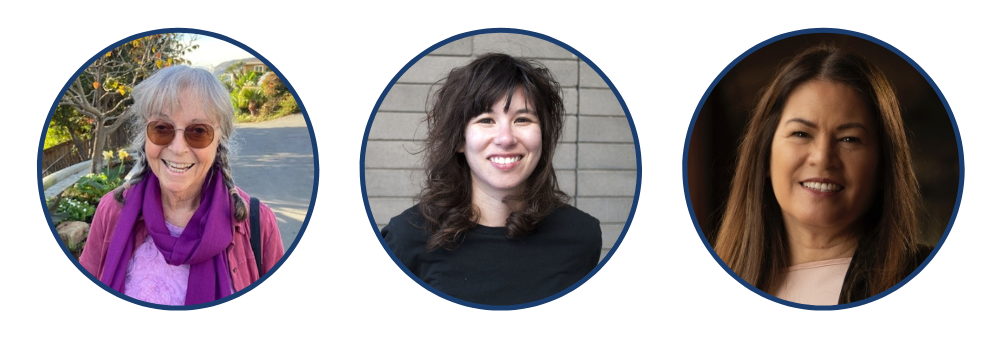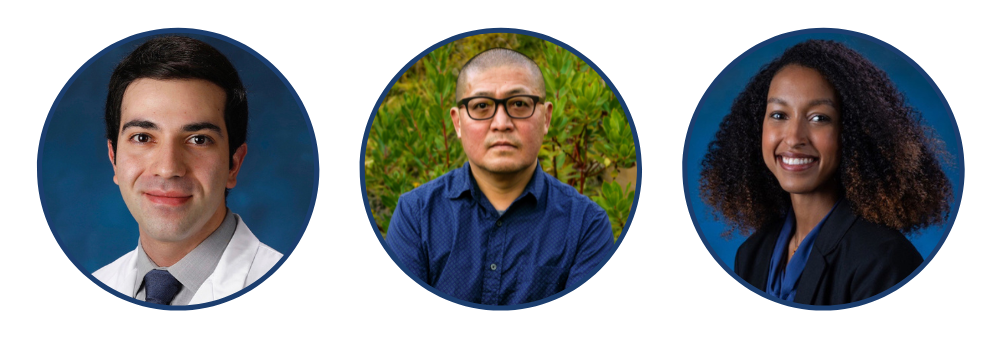
By Munyao Kilolo, Ph.D. student in comparative literature
Johanna F. Shapiro, Professor Emerita of Family Medicine in the School of Medicine, grew up surrounded by literature and poetry. However, it wasn't until 1997 that the intersection of medicine and poetry painfully became real to her. In that year, she suffered a major medical challenge, forcing her to devote countless hours to researching her condition. Every piece of information she found during her research made her feel worse. Then, a friend approached her with an unusual suggestion: reading poetry.
She recalls, “My friend brought me a book of poetry by Emily Dickinson, which had nothing to do with my specific medical condition. However, I found it very uplifting and consoling to read. After my leave of absence, I came back energized and remember thinking, ‘This is wonderful. I want to share what happened to me with the medical students that I teach.’”
Shapiro started the first literature and medicine elective at the UCI School of Medicine, Doctor Patient Stories, which is still running over two decades later. With a smile of deep nostalgia, she says, “You know, it was mostly me and some medical students. And we just sat around and read poetry and stories with medical themes. And it was wonderful.”
Natalie Shapero, celebrated poet and associate professor of English, notes that there is a growing recognition of the need to have a humanities-based understanding of narrative and subjectivity take a leading role in the practice of medicine. “I am grateful to medical professionals and future medical professionals who are turning to literature as a way to be the most informed, compassionate and empathetic care providers they can be.”
Creating PLEXUS
A year later two medical students approached Shapiro with an idea to start a literary journal that would bring together the voices of medical students, faculty, staff and even patients. That dream became PLEXUS. The student-organized publication has showcased creative work by medical students, physicians, faculty and others in the UCI medical community for 25 years.
PLEXUS will commemorate its 25th anniversary this year, a testament to the enduring legacy of its pioneering concept and product. Christopher Sahagian, a fourth-year medical student, is editor-in-chief of this silver jubilee edition, having admired the journal's work since he was an undergraduate at UCI. He reflects, “Looking through all the pieces submitted for this year's edition, it's inspiring to see people turn to all sorts of writing to express themselves and explore how they navigate the many challenges of healthcare.”

According to Juliet McMullin, Professor of Family Medicine and the Director and Endowed Chair of the Medical Humanities and Arts program at UCI, there were 140 submissions to the journal this year. McMullin works closely with the editorial team to support the publication and notes that the submissions reflect a variety of issues that medical students have navigated over the past 25 years, including COVID-19. The high number of submissions demonstrates the need for poetry in particular, and indeed all of the art forms, as a forum for sharing perspectives and personal experiences.
On her artistic side, McMullin explores graphic medicine through comics. She started examining this link between comics and medicine back in 2010 at a time when she was exploring how patients could make comics about their cancer experience. Her work considers using imagery and text as transformative mechanisms to engage with embodiment, and collaborations with colleagues to curate talks on the intersection of poetry and comics. Together, they had participants write poems, and then create comics from their poems. “I think that is such an important space for physicians and medical students to have and know that there is an audience for their poetry. And to know that it's a safe space for them to express themselves, whether they want to share it or keep it for themselves,” adds Dr. McMullin.
Navigating with the aid of the Humanities
Sahagian adds that this year's PLEXUS theme “Navigate” encourages his colleagues to use the many expressive aspects of the humanities and the arts, such as poetry, narrative fiction and even paintings to process their feelings as they navigate the medical environment. “As healthcare providers, we often are challenged to negotiate our own emotional responses to life-altering moments for our patients and their loved ones. Doctors bear witness to many such moments, including end of life, and it can be very taxing. Turning to the tools of the humanities, like poetry, offers me the chance to digest those feelings,” he says. “By allowing my thoughts to percolate through poetry, I can then allow what I’ve gained from that experience to inform my care of future patients.”
Shapiro offers context for Sahagian’s thoughts by observing that there is a multiplicity of ways in which poetry and other forms of literature and art benefit patients, physicians and medical students. Historically, it was expected that the attention of physicians is directed outward toward the patient. She adds, “And of course, that's appropriate, right? Physicians are trained to put patients first, or at least to put patients very high up. But the health and wellbeing of doctors is vitally important as well. The healing, the empathy that we can derive from literature, from poetry, is very applicable to the trauma that medical students and physicians go through in becoming doctors and in treating very sick, sometimes dying patients. Caring for patients with serious illness can result in secondary trauma.”
According to Jim Lee, the immediate former director of medical humanities at the School of Humanities and professor of Asian American studies, medical students and newly trained doctors are thrown into a crucible of experience. Within two years, they have to memorize and learn an encyclopedia of things. There is often very little time to process what they are learning. They also have to rotate between different specialties, and some of these specialties are more active than others. Lee explains that for this reason, medical students and nurses experience things that, in other cases, would be called trauma.
Natalie Shapero agrees that the humanities are special in that they are a conversation anyone can enter, and provide the basis for asking core questions “about our ethical orientations and social structure. About how our use of language produces our culture, and how our culture goes back and shapes the language.” For her, these are conversations that anyone can have, and because poetry is porous, it makes sense that poetry would be a vessel for many different disciplines.
Med Poets Society
Generations of students have benefited from the work started by Johanna Shapiro, which McMullin and others continue. These efforts have created the space for medical students to see beyond the science in their training in order to embrace other aspects of their lives that might help with their profession.
One such student, Bethlehem Tesfaye, a 2024 graduate of the UCI School of Medicine and incoming Resident at NYU Grossman School of Medicine, found the first-year elective to be the place where her interests in poetry and medicine converged. Her interest in poetry started as an undergraduate, but in medical school, she used it as an outlet.

There are healthy ways and unhealthy ways to process traumatic medical experiences. Lee says that the higher rates of self-medication through alcohol and other drugs within both medicine and nursing are due to the traumatic experiences. He reflects that, “In these fields, there are very high suicide rates because they are not able to process those experiences. You go through a trauma, and you relive it again because you have to go to work the next day.”
Tesfaye chose to cope with everything around her during medical school through poetry and connecting with a community of like-minded colleagues. “For me, medical school consisted of so much expectation and so much knowledge thrown at me at once. And that was overwhelming many times. My classmates and I figured that we needed some outlet to talk about what we're going through and validate each other in our shared experiences,” Tesfaye says.
The students formed an unofficial poetry club and named it the Med Poets Society, a play on the old movie Dead Poets Society. They would meet every other month to catch up on what was going on and read their work to one another. It became another space for them to slow down.
A sense of community like this didn't always exist. For instance, Sahagian’s first two years as a medical student were mostly remote due to the pandemic. He remembers a deep sense of isolation while studying at home, even though he was an Orange County native. In 2022, Sahagian submitted a piece to PLEXUS, and received a huge response from peers, who shared their own perspectives on how they coped through the pandemic.
According to Johanna Shapiro, when the pandemic happened, physicians did not need to be convinced of the value arts and humanities bring to their lives. Suddenly, physicians encountered helplessness in a way they had rarely experienced before, and they bumped up against the limits of medicine. This was completely disorganizing on a personal level for many physicians, who came face to face with the realization that their ability to ‘fix’ patients was greatly diminished.
“Faced with such helplessness, what can they do? They can write, paint and make music, and those might seem to be inadequate responses. But these were the tools that helped physicians navigate until scientists came up with effective vaccines,” says Johanna Shapiro. “At that moment, there was an awareness that we are grateful to science for meeting the threat of a pandemic, but healing and survival involve other dimensions as well. This is why literature is so important: it allows physicians to have that experience of compassion and understanding for another human being without only focusing on how to solve a diagnostic problem.”
As PLEXUS prepares to unveil its 25th-anniversary edition in a vibrant ceremony on May 9th, 2024, it symbolizes more than just a milestone. It is a testament to the transformative power of blending medicine with the humanities. From poetry to art, PLEXUS continues to provide a canvas for healing narratives, bridging the gap between medical practice and the soulful expressions that enrich it.
Interested in reading more from the School of Humanities? Sign up for our monthly newsletter.
